
Confusing Words
Confusing Words: Clarify Commonly Misused Terms
Confusing words are terms that often look or sound similar but have different meanings. Examples include “affect” vs. “effect”, “there” vs. “their,” and “complement” vs. “compliment.” These words can create confusion in writing and speaking. Learning the differences between them helps you avoid mistakes and communicate more clearly.
Mastering confusing words makes your English more precise and professional, whether in writing or conversation.

"A", "an" and "the" are articles in English, here you will learn how to use these articles properly. Improve your ...
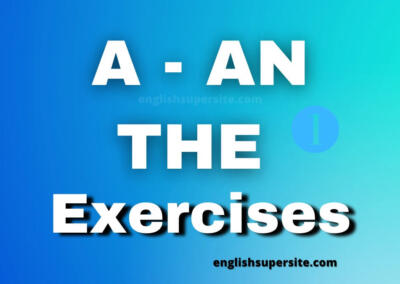
A - AN - THE - Exercises 1 - Practice exercises with articles in English. Using A, AN and THE. Improve your ...
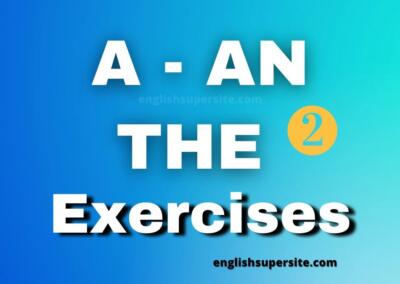
A - AN - THE - Exercises 2 - Practice exercises with articles in English. A - AN - THE - Quiz 2. Improve your ...
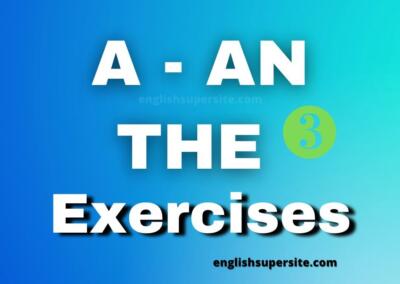
A - AN - THE - Exercises 3 - Practice exercises with articles in English. A - AN - THE - Quiz 3. Improve your ...
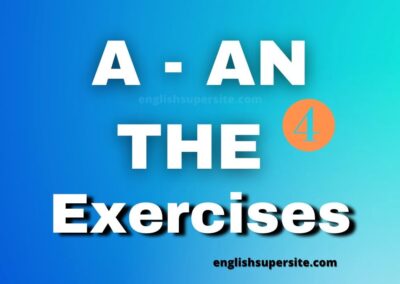
A - AN - THE - Exercises 4 - Practice exercises with articles in English. A - AN - THE - Quiz 4. Improve your ...
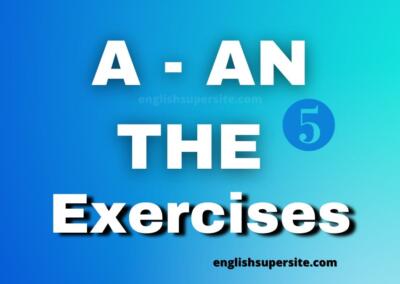
A - AN - THE - Exercises 5 - Practice exercises with articles in English. A - AN - THE - Quiz 5. Improve your ...
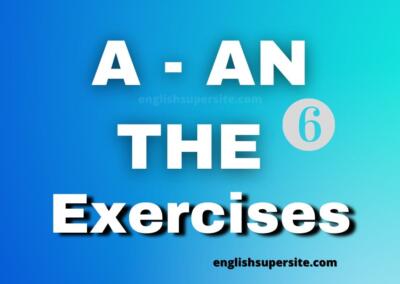
A - AN - THE - Exercises 6 - Practice exercises with articles in English. A - AN - THE - Quiz 6. Improve your ...

Addressing People in English | English Super SiteHow to address people in English!How to address ...
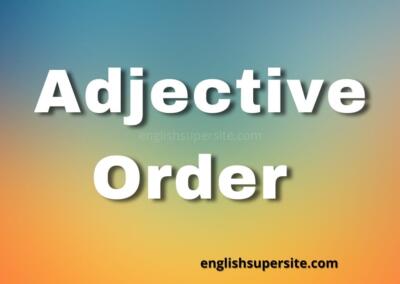
Learn Adjective Order in English! A Guide to using OSASCOMP correctly. Learn with examples for clear, perfect and ...
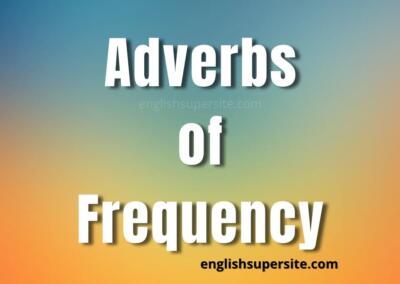
Adverbs of Frequency | English Super SiteAdverbs of frequency are adverbs of time.Adverbs ...

What is the difference between: Affect and Effect? They have different meanings but are frequently confused.
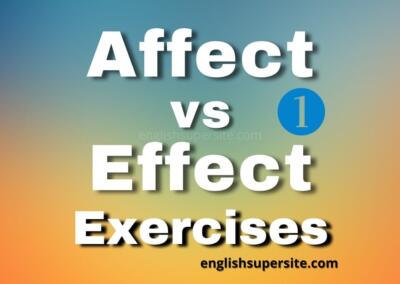
Affect vs Effect - Exercises 1 - Practice exercises with affect and effect in English. Affect or Effect - Quiz 1. ...
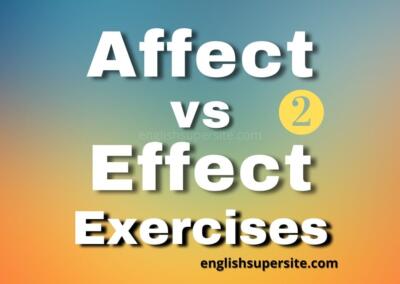
Affect vs Effect - Exercises 2 - Practice exercises with affect and effect in English. Affect or Effect - Quiz 2. ...
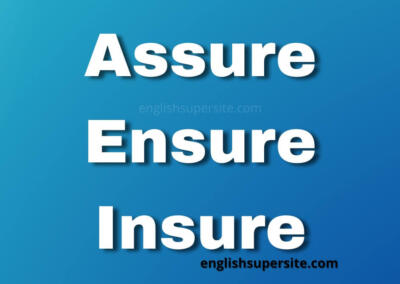
Assure, ensure and insure are commonly confused. Simply said, they all mean: to make sure or certain of something. ...

What’s the difference between: borrow, lend, and loan?
They can be very similar, but mean completely different ...

Borrow, lend, and loan - Exercises - Quiz. Test your English skills by completing all questions. Score in Real-Time!

Capital Letters in English! Improve your written English. Study and learn capital letters, upper-case letters, big ...
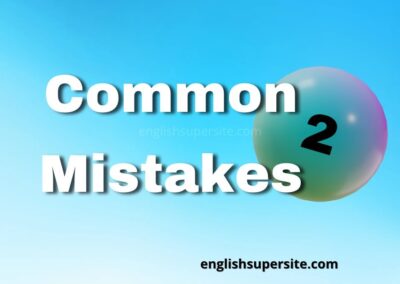
Common Mistakes in English 2. Here you will find common mistakes that the average English student commonly makes. ...
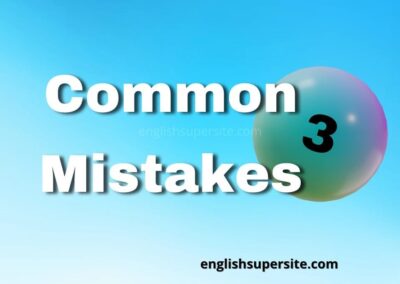
Common Mistakes in English 3. Here you will find common mistakes that the average English student commonly makes. ...
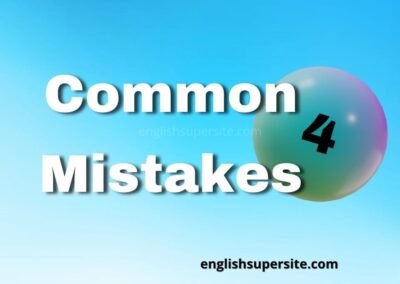
Common Mistakes in English 4. Here you will find common mistakes that the average English student commonly makes. ...
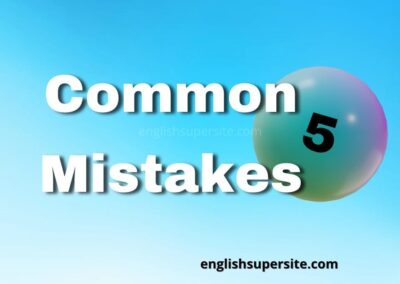
Common Mistakes in English 5. Here you will find common mistakes that the average English student commonly makes. ...
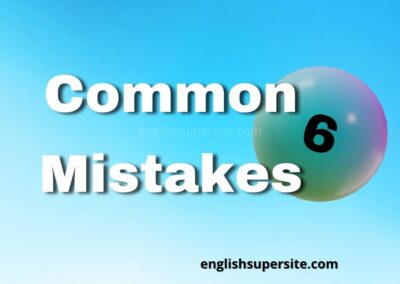
Common Mistakes in English 6. Here you will find common mistakes that the average English student commonly makes. ...
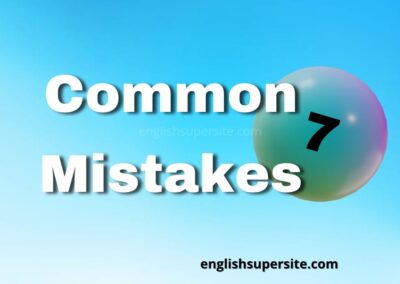
Common Mistakes in English 7. Here you will find common mistakes that the average English student commonly makes. ...
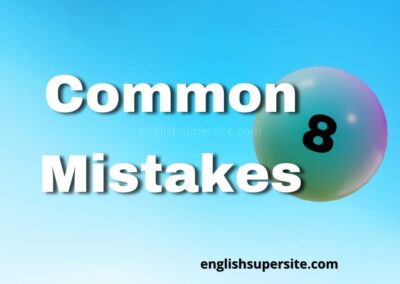
Common Mistakes in English 8. Here you will find common mistakes that the average English student commonly makes. ...
Related Posts
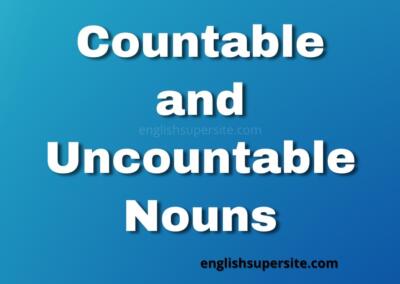
Nouns can be countable and uncountable. Learn here, the difference between countable and uncountable nouns! Learn ...

Much, many, little, and few. Learn when and how to use these words in your daily life. Never make a mistake again ...
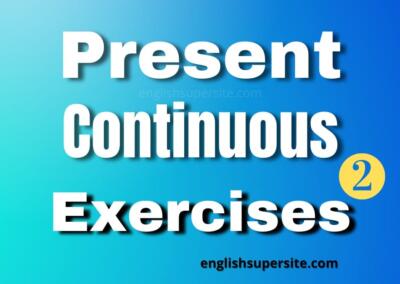
Verb Tenses - Present Continuous - Exercises 2 - Practice this quiz with Present Continuous. Improve your English ...


